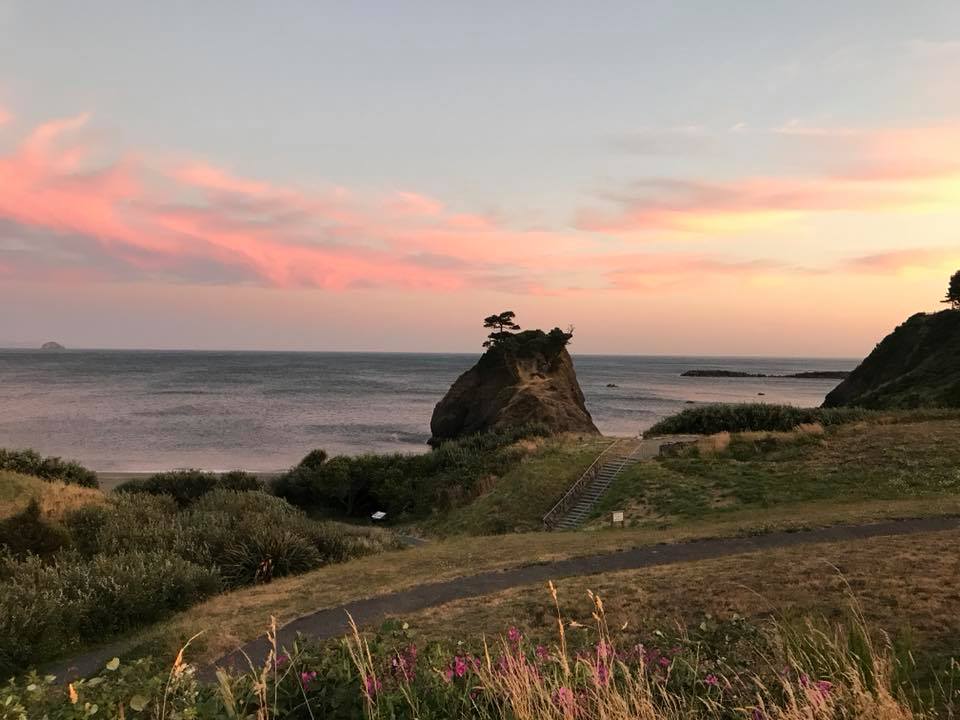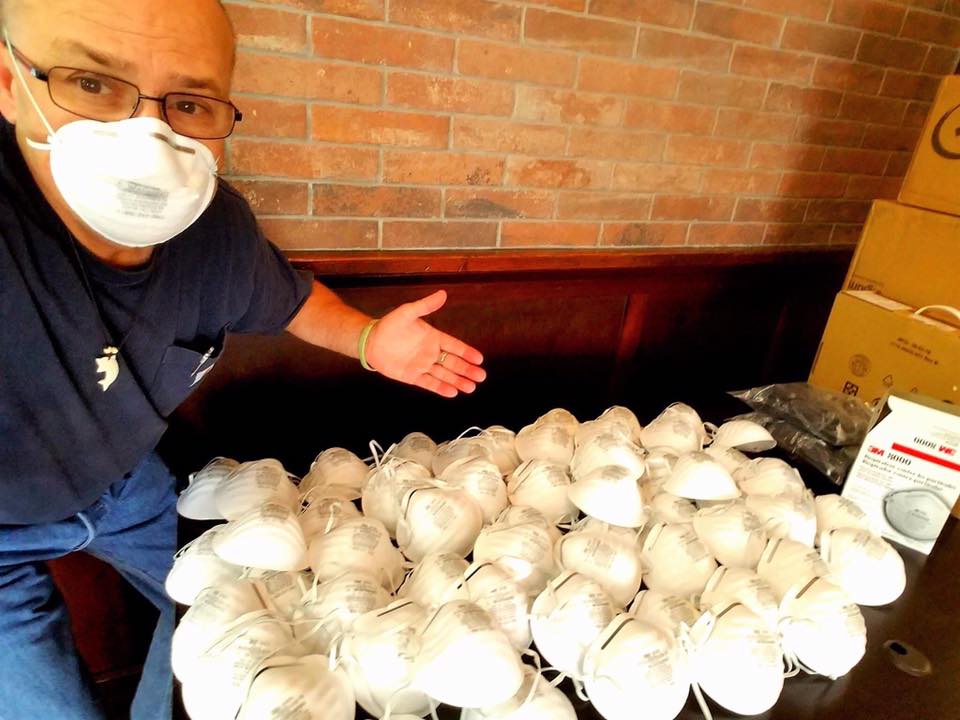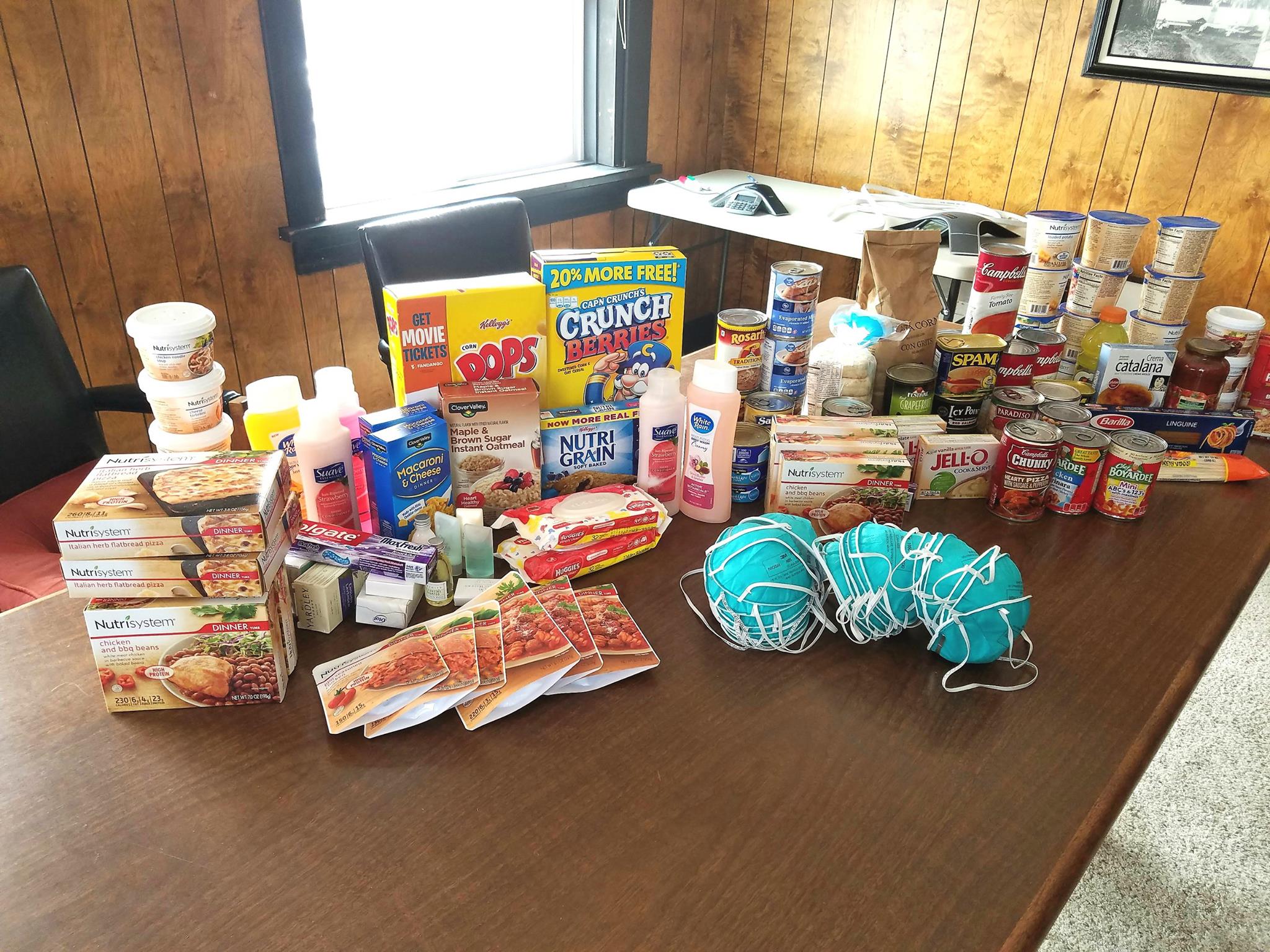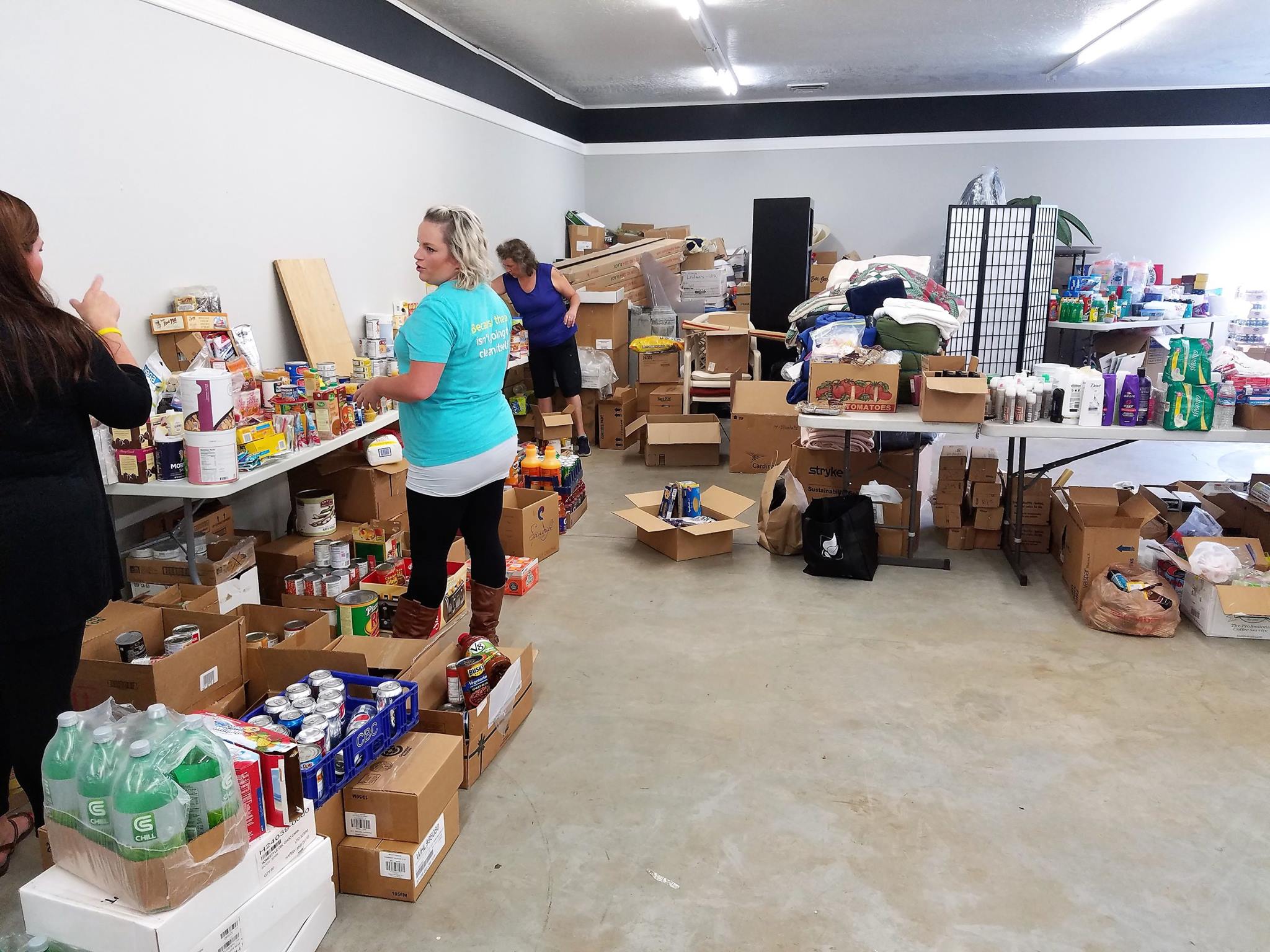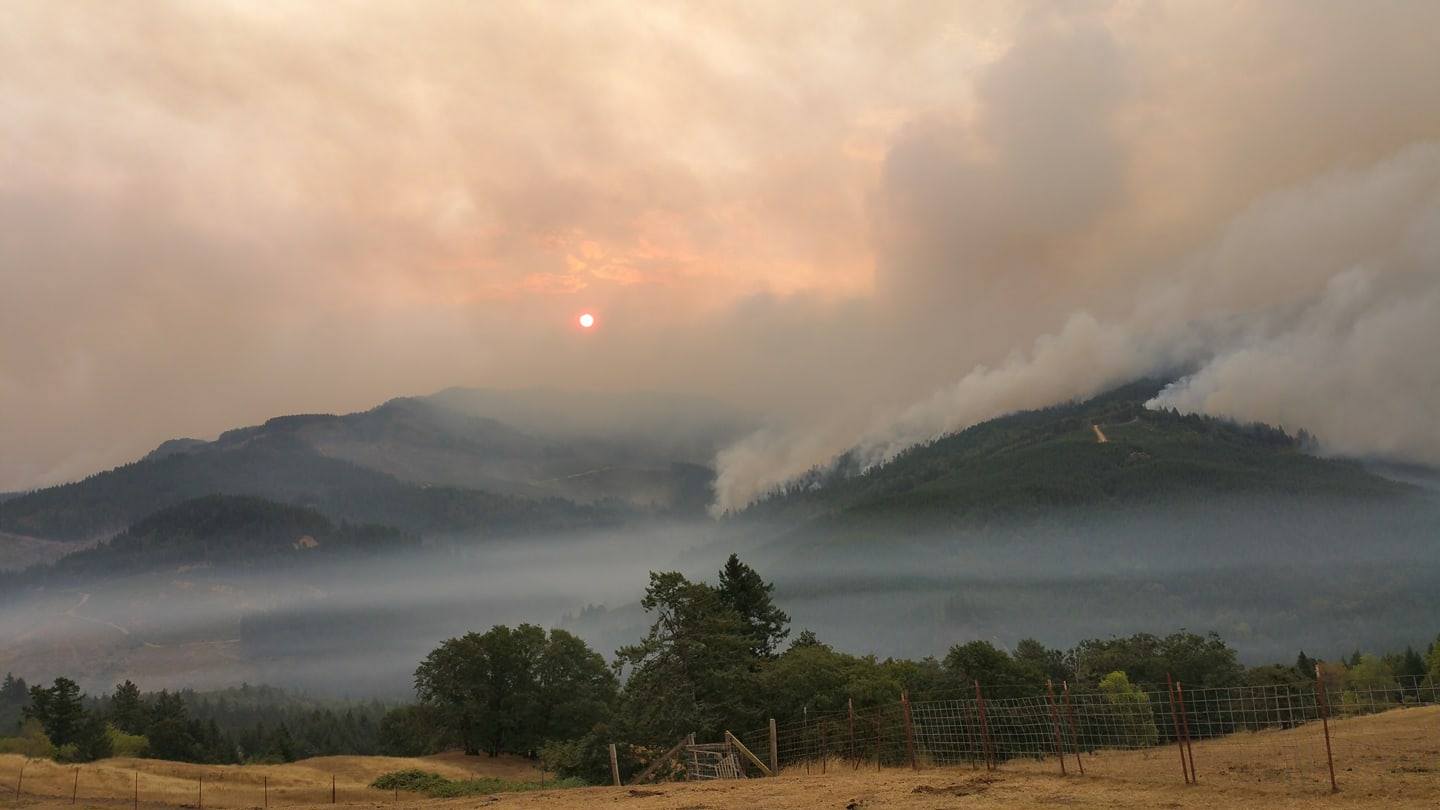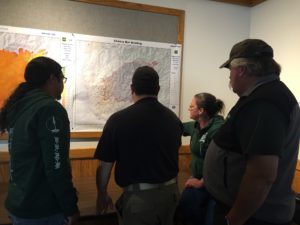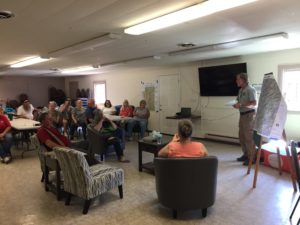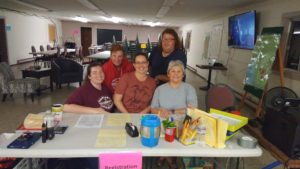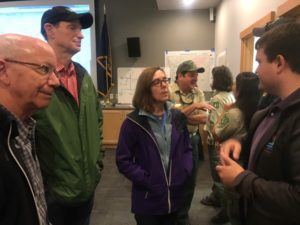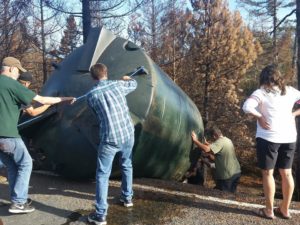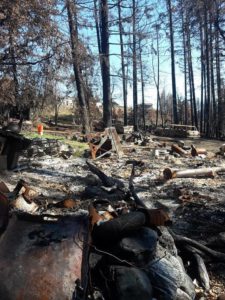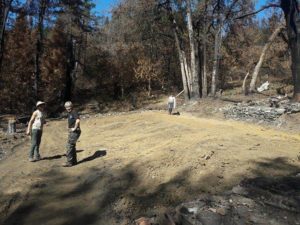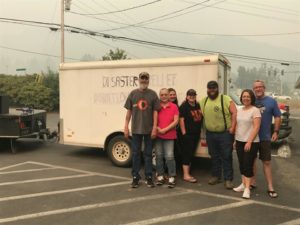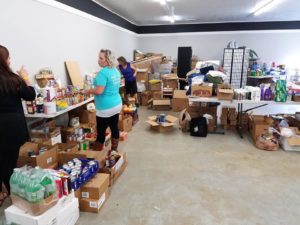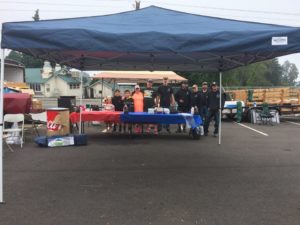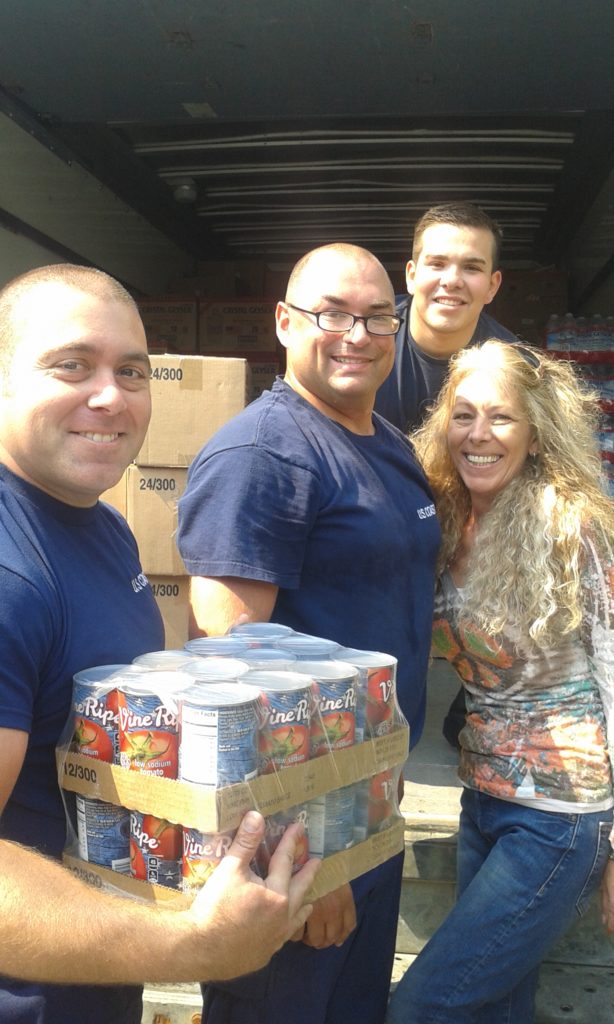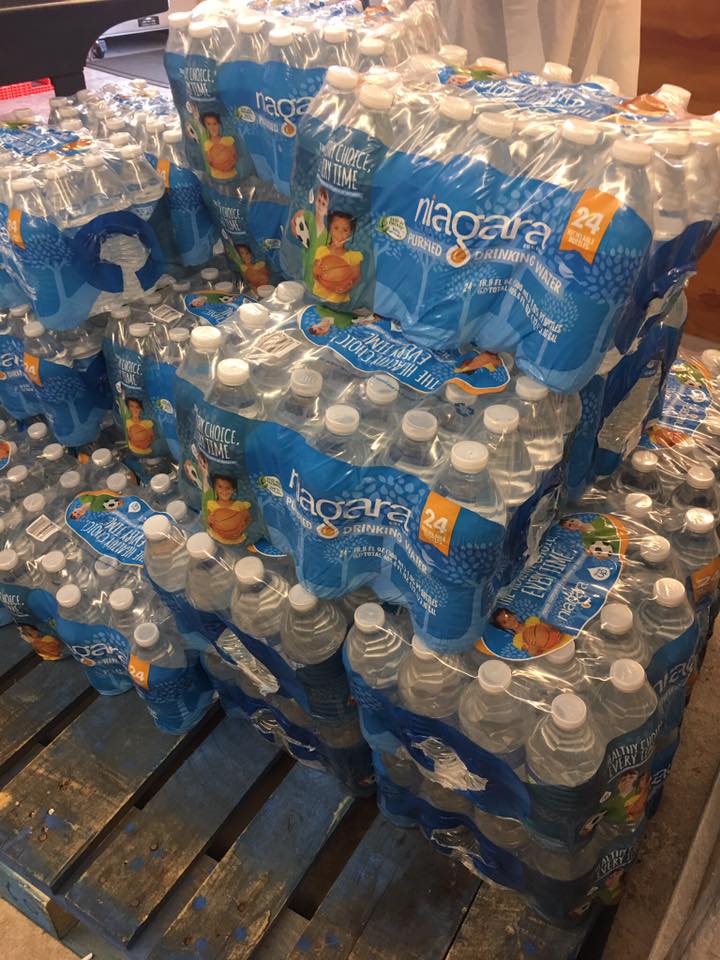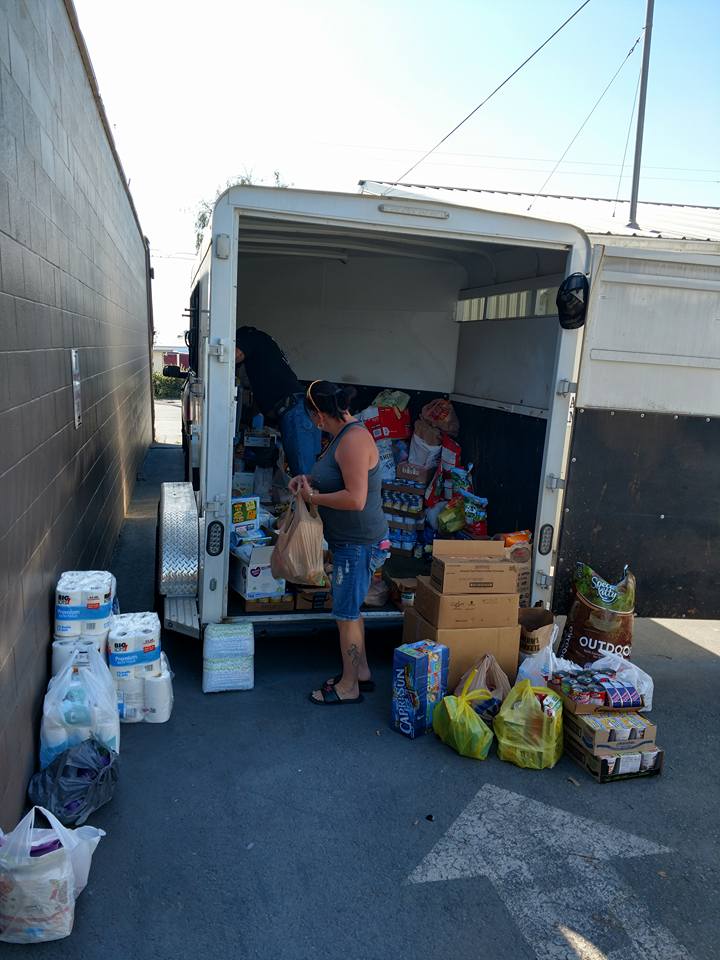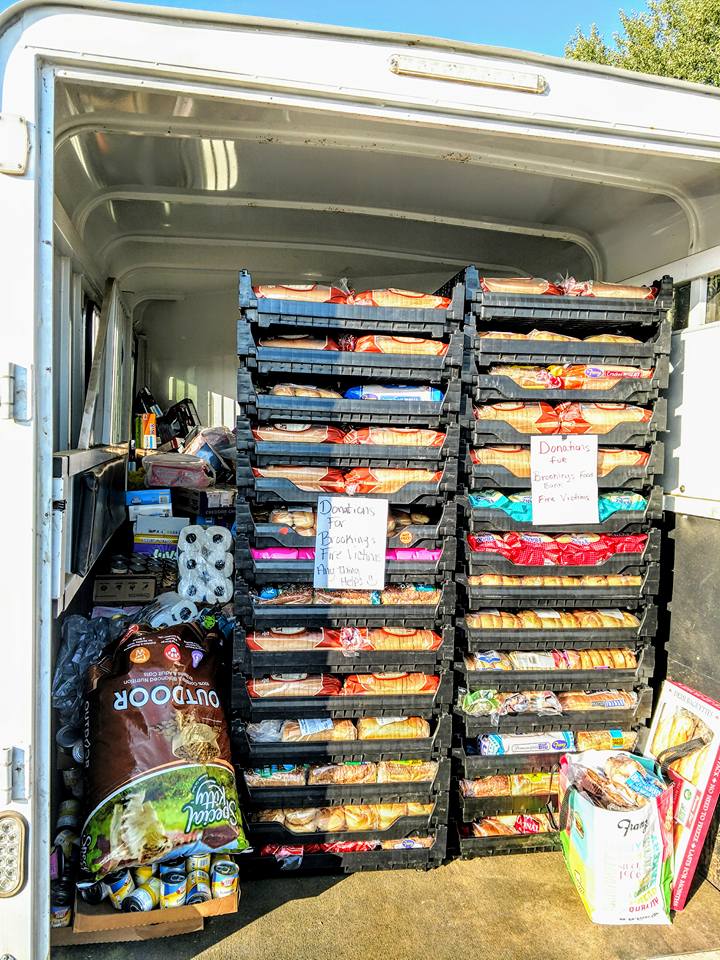Chetco Bar Fire Stories: Support from Port Orford and Beyond
Support from Port Orford and Beyond
During the Chetco Bar Fire, Curry County saw an outpouring of support from outside the immediate area. Jeff MacFarlane, owner of Camp Blanco RV Park in Port Orford, was part of the team who led the effort to get donations where they were needed; his focus was on the donations coming from North Curry, Coos & Douglas counties. This is his story…
Jeff had gotten into the habit of checking Facebook for reports about the fire when, sometime in late August or early September, he started to see posts about the Food Bank running low on food due to extra demand. “I was pretty familiar with wildfires,” Jeff said, “from living most of my life in Northern California where they happened close by and frequently (like the Fountain Fire near Redding) and I wanted to do something to help the folks in Brookings.”
Jeff continued, “I thought to myself: ‘I’m self-employed; I have a truck and a teenager I can put to work; I have access to a trailer; my location is perfect [Camp Blanco RV Park fronts highway 101 and is within Port Orford city limits]…how could I NOT do something?’”
Challenging Others to Donate
So, he started up the Port Orford Chetco Bar Fire “donation challenge”. He posted the challenge on the North Curry News & Views Facebook group page, asking everyone in Port Orford to bring donations to his location, which he planned to deliver down to Brookings once he had a full load. He got permission from the local fire chief to use the county emergency response trailer, which he then parked in the middle of his RV park; had his friend, Julie Ells, make some signs; and was immediately overwhelmed with the amount of donations that started pouring in.
“I mean, I KNEW some people would help,” Jeff said, “but I was really surprised at the level of it all; at one point, I remember there were 8 trucks lined up to help deliver donations to Brookings, we were getting so much help!”
No System In Place
As echoed in many of the interviews for the Chetco Bar Fire Series, Jeff noted that there really was no organized system in place to coordinate all the donations. A system had to be developed as they went along. Everyone wanted to help, but the lack of a system made it a challenge. Jeff basically decided on his own to be “the one doing the gathering,” as he put it.
That meant Jeff became the main hub for all donations coming from the north. This included Port Orford and Langlois; Coos County (Joni Wasson had a food drive going at the Fred Meyer in Coos Bay; another lady from Coquille – Lisa – started collecting food at the McKays there); basically, everything coming from the north. Jeff became acquainted with Summer Matteson and Andre Bay, neither of whom he’d known prior to the donation effort. Jeff would report to them what he had coming in from North Curry and points north; Summer and Andre would then tell him what was needed, and when and where it was needed.
Many Generous People; Many Helping Hands
Brett Webb, commercial crab fisherman, friend, and Port Orford city council member (“…who actually started working on this before I did,”Jeff said) was instrumental in getting permission to store the excess food and other donations at the Port Orford Community Building until they were needed in Brookings and could be transported. Dave Duncan, Port Orford fire chief, approved the use of the Curry County emergency response trailer that Jeff parked at his campground.
Jeff’s friend, Andy Juell, took some of the truckloads down, as did others; his camp host, William, helped organize the donations that were brought to Camp Blanco. Jeff and others would go north with empty trailers, fill them up with donations, and deliver them down to Gold Beach, Brookings, and Smith River.
And The Donations Poured In
“People I didn’t even know were making donations,” he went on. “Even my son’s girlfriend, Lacey Smith, who’s a bartender at Pitches, announced that they would donate a week’s worth of tips to the cause; she ended up collecting over $1,000 to send down to the Chetco Bar Fire fund at Wild Rivers Community Foundation!”
Jeff continued, “From start to finish, I believe our local team and I were able to collect and deliver just over 10,000 pounds of mostly food, some water, and a few other items like blankets, pet supplies, toiletries, and other household goods.”
“Everybody in Port Orford wanted to do something, it wasn’t just me” Jeff explained. “People would come into the RV park, literally put a wad of cash in my hand, and say ‘give this to the folks dealing with the fire’. They knew just like I knew…this could very easily have been us needing the help.”
Jeff MacFarlane was interviewed by Kathleen Dickson on Feb. 5, 2018. Thanks to Jeff for making this story possible. Thanks also to Brian Tillung for generously contributing photos for this story.

